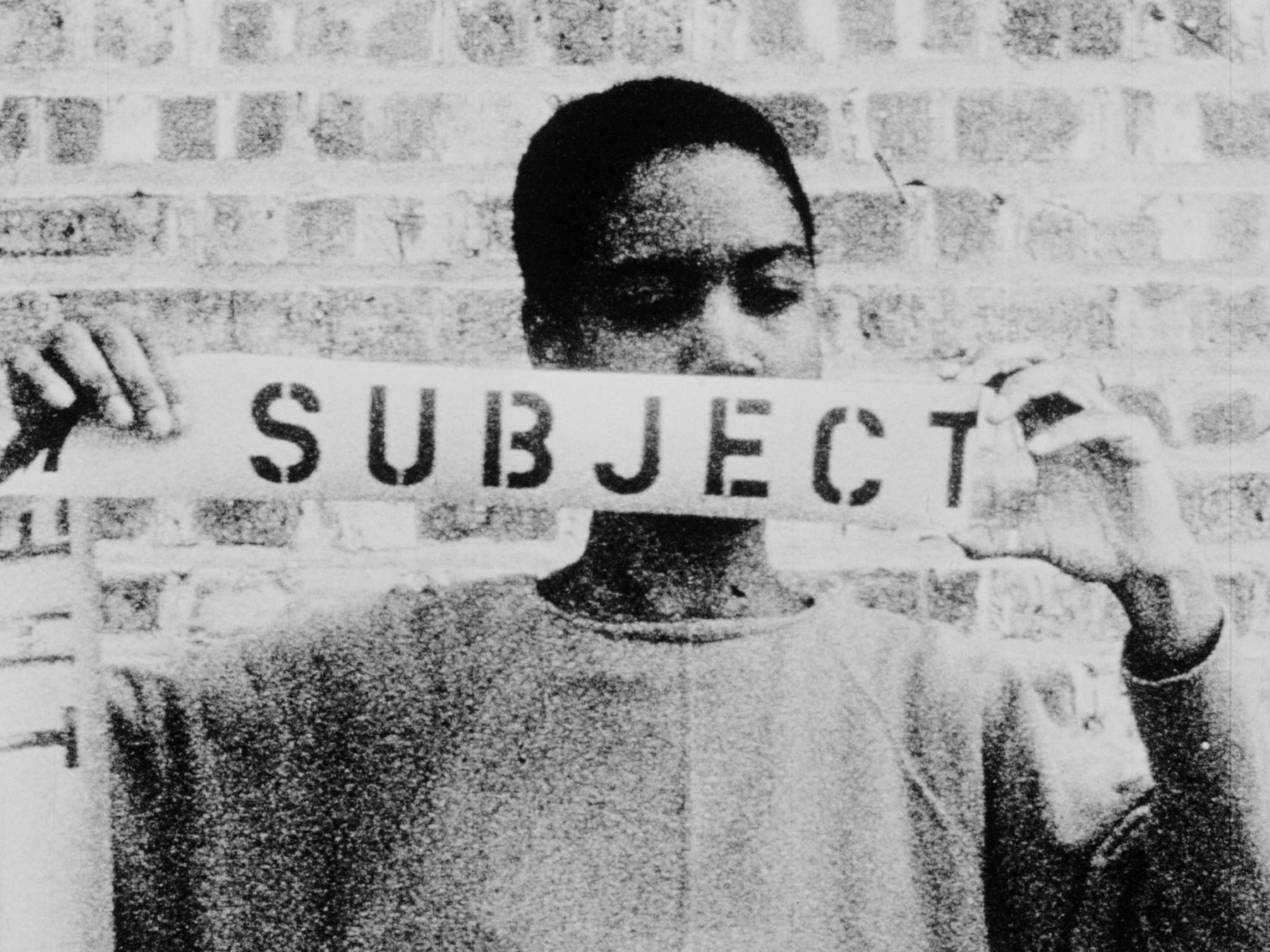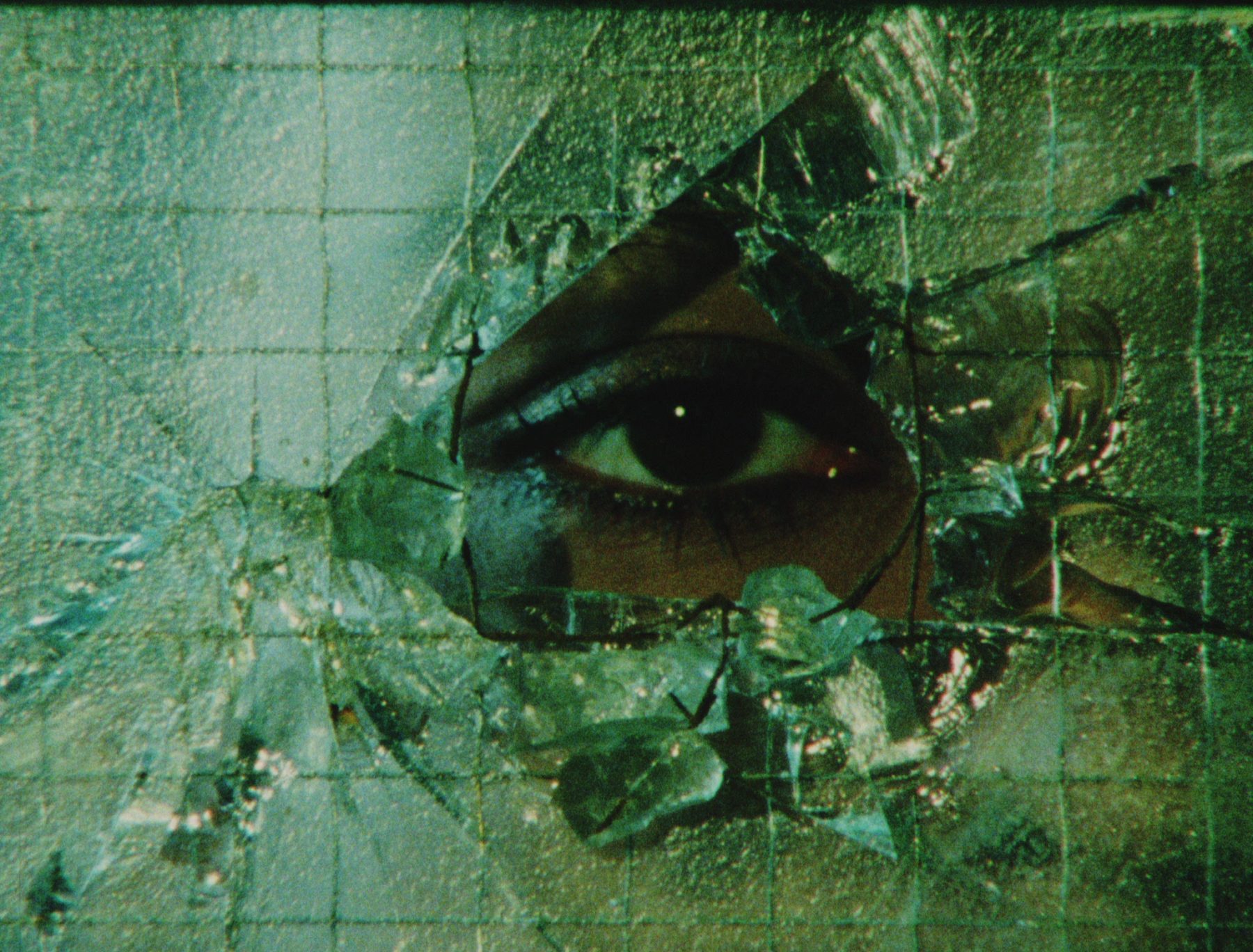
“A Prayer Before Birth (20 min., 1991) is startling in its dislocating but enthralling moving image sequences, chronicling Duckworth’s lived experience with multiple sclerosis (MS) to tackle entangled questions of subjectivity, disability and desire, all in the space of nineteen minutes. In A Prayer Before Birth not only does Duckworth foreground lesbian subjectivity, but she also articulates a visual language to represent the non-healthy body. Taking on strategies of Surrealism and American Avant-garde film, Duckworth uses non-normative narrative in the film to escape the limitations of “positive images” of disability and lesbian identity. This modified surrealist aesthetic reflects ‘an increasing sense of unreality’ and produces new realities to grapple with the psychological and physical traumas that MS induces.”
—Lucy Howie
A Prayer Before Birth is shown in the context of The Work We Share, a film program of ten newly digitized films from the Cinenova collection. Produced between 1972 and 1994, the films address oppositional histories and questions of difference through the lenses of gender, race, sexuality, health, and community.
The Work We Share gathers a number of films that previously existed in precarious conditions, in some cases, with negatives being lost or distribution film prints being the only copy. This program intends to acknowledge Cinenova’s interdependency: from organization to filmmakers, cultural workers, communities, and individuals. How can we acknowledge our interdependent relationships? How can we recognize our place in a network of communications, relationships, and resources, particularly as an un-funded volunteer organization? What different strains of labor does our work rely on? How do we sustain this work mutually?
Cinenova is a volunteer-run charity preserving and distributing the work of feminist film and video makers. It was founded in 1991 following the merger of two feminist film and video distributors, Circles and Cinema of Women, each formed in 1979. Cinenova currently distributes over 300 titles that include artists’ moving image, experimental film, narrative feature films, documentary, and educational videos made from the 1910s to the early 2000s.
Jacqui Duckworth was an independent filmmaker, born in Warrington in 1948. All of Jacqui’s film and photography work arose from an instinctive and original cleverness rather than a traditional academic approach and she made several searching films before the MS diagnosis in her early 30s prevented her carrying on with her plans for further film projects. These included: An Invitation to Marilyn C, Home Made Melodrama and A Prayer before Birth, the latter shown on Channel 4 as part of a series exploring the relationship between mind and body.

A Song of Ceylon (51 min., 1985) is a study of colonialism, gender, and the body. It stages and interprets a Sri Lankan ritual of spirit possession and cure, and takes the form of a stylised non-narrative film that presents an audio-visual montage of “possessed bodies.” Its title refers to Basil Wright’s 1934 documentary The Song of Ceylon about the then British colony of Ceylon, renamed Sri Lanka in 1972. Invoking the idea of absence and of history withdrawn, Jayamanne’s film pursues a rite of the body.
A Song of Ceylon is shown in the context of The Work We Share, a film program of ten newly digitized films from the Cinenova collection. Produced between 1972 and 1994, the films address oppositional histories and questions of difference through the lenses of gender, race, sexuality, health, and community.
The Work We Share gathers a number of films that previously existed in precarious conditions, in some cases, with negatives being lost or distribution film prints being the only copy. This program intends to acknowledge Cinenova’s interdependency: from organization to filmmakers, cultural workers, communities, and individuals. How can we acknowledge our interdependent relationships? How can we recognize our place in a network of communications, relationships, and resources, particularly as an un-funded volunteer organization? What different strains of labor does our work rely on? How do we sustain this work mutually?
Cinenova is a volunteer-run charity preserving and distributing the work of feminist film and video makers. It was founded in 1991 following the merger of two feminist film and video distributors, Circles and Cinema of Women, each formed in 1979. Cinenova currently distributes over 300 titles that include artists’ moving image, experimental film, narrative feature films, documentary, and educational videos made from the 1910s to the early 2000s.
Laleen Jayamanne taught Cinema Studies at the University of Sydney. Her undergraduate education was in Sri Lanka and she has a Masters in Drama from New York University and a Ph.D. in film from the University of New South Wales, on “The Positions of Women in the Sri Lankan Cinema; 1947-1979.” She is the author of The Epic Cinema of Kumar Shahani (Indiana University Press, 2015) and The Poetic Cinema and the Spirit of the Gift in the Films of Pabst, Paradjanov, Kubrick and Ruiz (Amsterdam University Press, 2021).
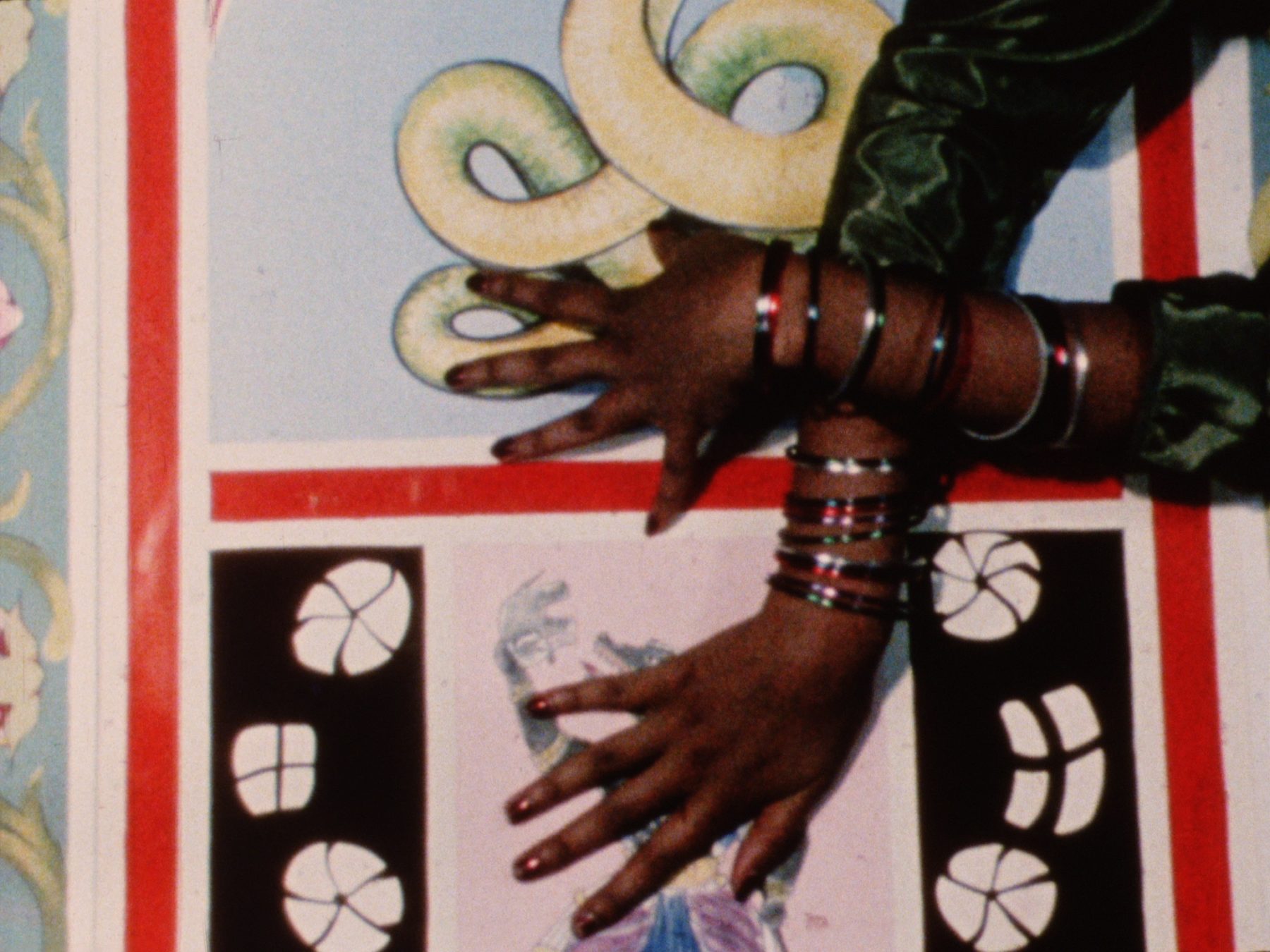
Sweet Sugar Rage (56min., 1985) exposes the exploitation of women’s labor in Jamaica’s sugar cane fields and shares the themes and methods of Sistren’s workshops and theatre in the context of their wider efforts in education, employment rights, and community activism. The film combines the testimony of women that work in the cane fields with evidence of their working conditions and their employers’ attitudes as the basis of drama workshops that bring rural and urban women into dialogue to analyze the exploitation of working-class women’s labor and to challenge the patriarchal attitudes of employers and unions alike. Following the methods of Paulo Freire’s “conscientization” and Bertolt Brecht’s “alienation method,” we see the women collectively take charge of staging and re-staging ways to challenge the systems that oppress them, which offers methodologies of learning together to acquire the feminist and decolonial tools to effect social change.
Sweet Sugar Rage is shown in the context of The Work We Share, a film program of ten newly digitized films from the Cinenova collection. Produced between 1972 and 1994, the films address oppositional histories and questions of difference through the lenses of gender, race, sexuality, health, and community.
The Work We Share gathers a number of films that previously existed in precarious conditions, in some cases, with negatives being lost or distribution film prints being the only copy. This program intends to acknowledge Cinenova’s interdependency: from organization to filmmakers, cultural workers, communities, and individuals. How can we acknowledge our interdependent relationships? How can we recognize our place in a network of communications, relationships, and resources, particularly as an un-funded volunteer organization? What different strains of labor does our work rely on? How do we sustain this work mutually?
Cinenova is a volunteer-run charity preserving and distributing the work of feminist film and video makers. It was founded in 1991 following the merger of two feminist film and video distributors, Circles and Cinema of Women, each formed in 1979. Cinenova currently distributes over 300 titles that include artists’ moving image, experimental film, narrative feature films, documentary, and educational videos made from the 1910s to the early 2000s.
Sistren Theatre Collective, which means ‘sisterhood,’ was founded in 1977 in Kingston, Jamaica, by working-class women in the social, cultural, and political context of Jamaica’s socialist experiment of the 1970s following the first decade of independence. Since 1977, Sistren has used art as a tool for social change for the discussion and analysis of gender-based violence and to provide solutions through organizational networks. The founding members included Vivette Lewis, Cerene Stephenson, Lana Finikin, Afolashade (then Pauline Crawford), Beverley Hanson, Jasmine Smith, Lorna Burrell Haslam, Beverley Elliot, Jerline Todd, Lillian Foster, May Thompson, Rebecca Knowles, and Barbara Gayle. Assisted by the actor and director Honor Ford-Smith, the Collective was forged through a government initiative to improve employment in Jamaica’s poorest communities. Plays like Downpression Get A Blow (1977), Bellywoman Bangarang (1978), Nana Yah (1980), QPH (1981), and Domestik (1982), along with community drama workshops, presaged the documentary Sweet Sugar Rage in 1985.
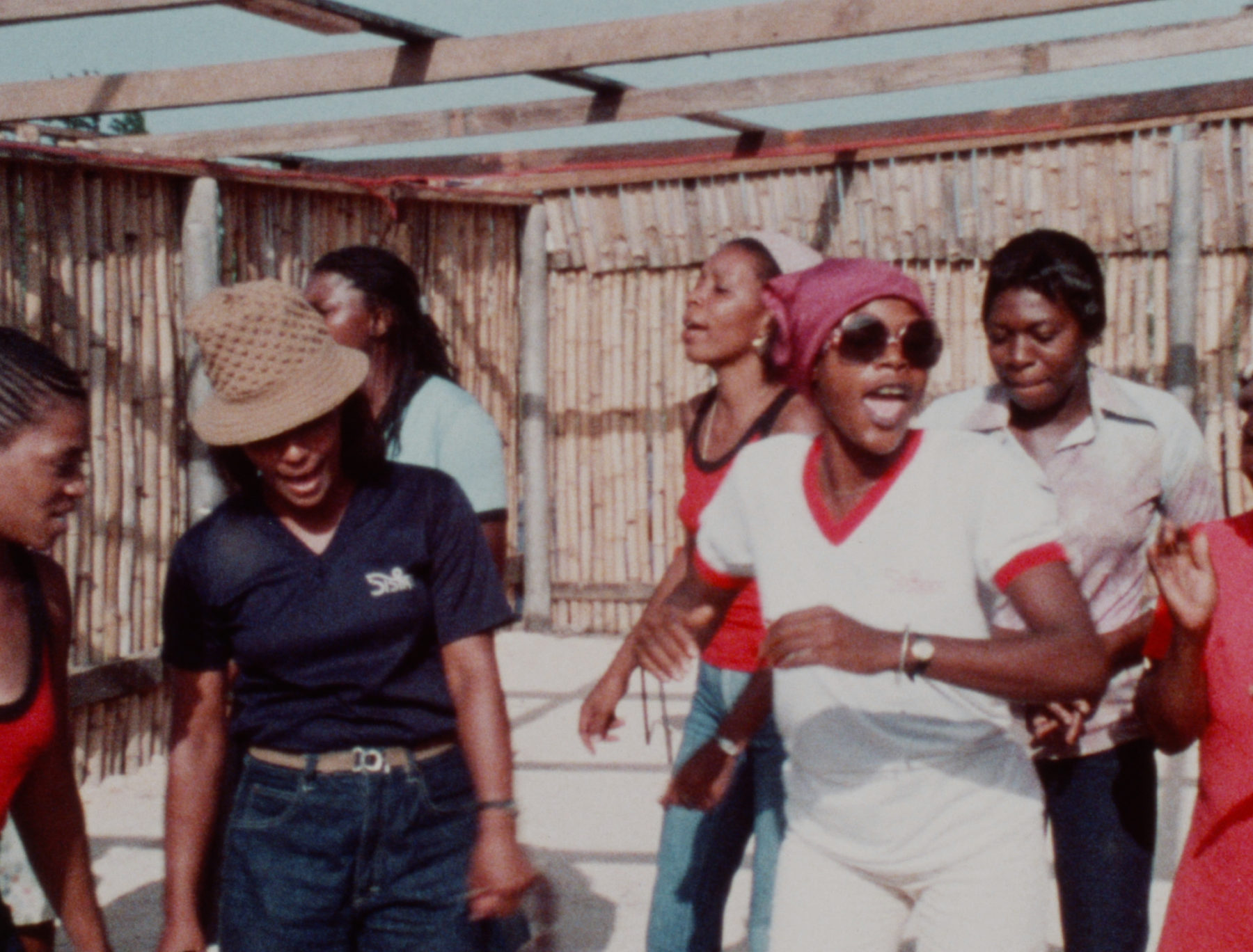
Three women from the Welsh Rhondda Valley mining community talk of their lives during the grueling miners’ strikes of the 1920s and 1930s. Women of the Rhondda (22 min., 1972) draws on oral history methods to present a radically new representation of labor from the perspective of working-class women.
Women of the Rhondda is shown in the context of The Work We Share, a film program of ten newly digitized films from the Cinenova collection. Produced between 1972 and 1994, the films address oppositional histories and questions of difference through the lenses of gender, race, sexuality, health, and community.
The Work We Share gathers a number of films that previously existed in precarious conditions, in some cases, with negatives being lost or distribution film prints being the only copy. This program intends to acknowledge Cinenova’s interdependency: from organization to filmmakers, cultural workers, communities, and individuals. How can we acknowledge our interdependent relationships? How can we recognize our place in a network of communications, relationships, and resources, particularly as an un-funded volunteer organization? What different strains of labor does our work rely on? How do we sustain this work mutually?
Cinenova is a volunteer-run charity preserving and distributing the work of feminist film and video makers. It was founded in 1991 following the merger of two feminist film and video distributors, Circles and Cinema of Women, each formed in 1979. Cinenova currently distributes over 300 titles that include artists’ moving image, experimental film, narrative feature films, documentary, and educational videos made from the 1910s to the early 2000s.
Esther Ronay, Mary Kelly, Mary Capps, Humphrey Trevelyan, Margaret Dickinson, Brigid Segrave and Susan Shapiro came together to make Women of the Rhondda in 1972. What started as research for an oral history book about the General Strike of 1926 turned into a film that captures the experience of four women from the Rhondda Valley mining community in South Wales.
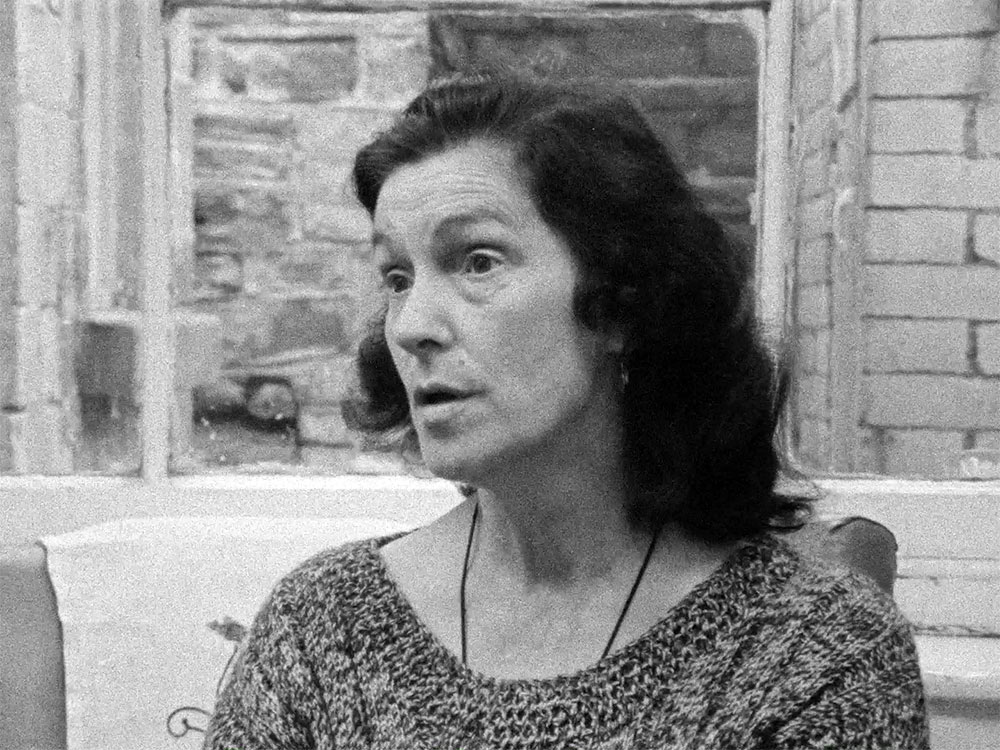
Described by S. Pearl Sharp as “a visual poem on identity,” Back Inside Herself (4 min., 1984) shows a Black woman finding her own sense of self and rejecting hegemonic societal expectations of who she should be and how she should behave.
Back Inside Herself is shown in the context of The Work We Share, a film program of ten newly digitized films from the Cinenova collection. Produced between 1972 and 1994, the films address oppositional histories and questions of difference through the lenses of gender, race, sexuality, health, and community.
The Work We Share gathers a number of films that previously existed in precarious conditions, in some cases, with negatives being lost or distribution film prints being the only copy. This program intends to acknowledge Cinenova’s interdependency: from organization to filmmakers, cultural workers, communities, and individuals. How can we acknowledge our interdependent relationships? How can we recognize our place in a network of communications, relationships, and resources, particularly as an un-funded volunteer organization? What different strains of labor does our work rely on? How do we sustain this work mutually?
Cinenova is a volunteer-run charity preserving and distributing the work of feminist film and video makers. It was founded in 1991 following the merger of two feminist film and video distributors, Circles and Cinema of Women, each formed in 1979. Cinenova currently distributes over 300 titles that include artists’ moving image, experimental film, narrative feature films, documentary, and educational videos made from the 1910s to the early 2000s.
S. Pearl Sharp’s (b. 1942, United States) work focuses on cultural arts, health, and Black Diaspora history, including the poetry short Back Inside Herself (1984 and 2009 Re-mix), the semi-animated Picking Tribes (1988), the celebrated The Healing Passage/Voices From The Water (2004) and directing numerous documentaries for the City of Los Angeles’ CH 35. Her films have screened in Norway, China, Britain, the Caribbean and at FESPACO. Instigating through art and activism, she authored the non-fiction books Black Women For Beginners and The Evening News, four volumes of poetry, and in 2021 she released the short poetry video Blood Bank.
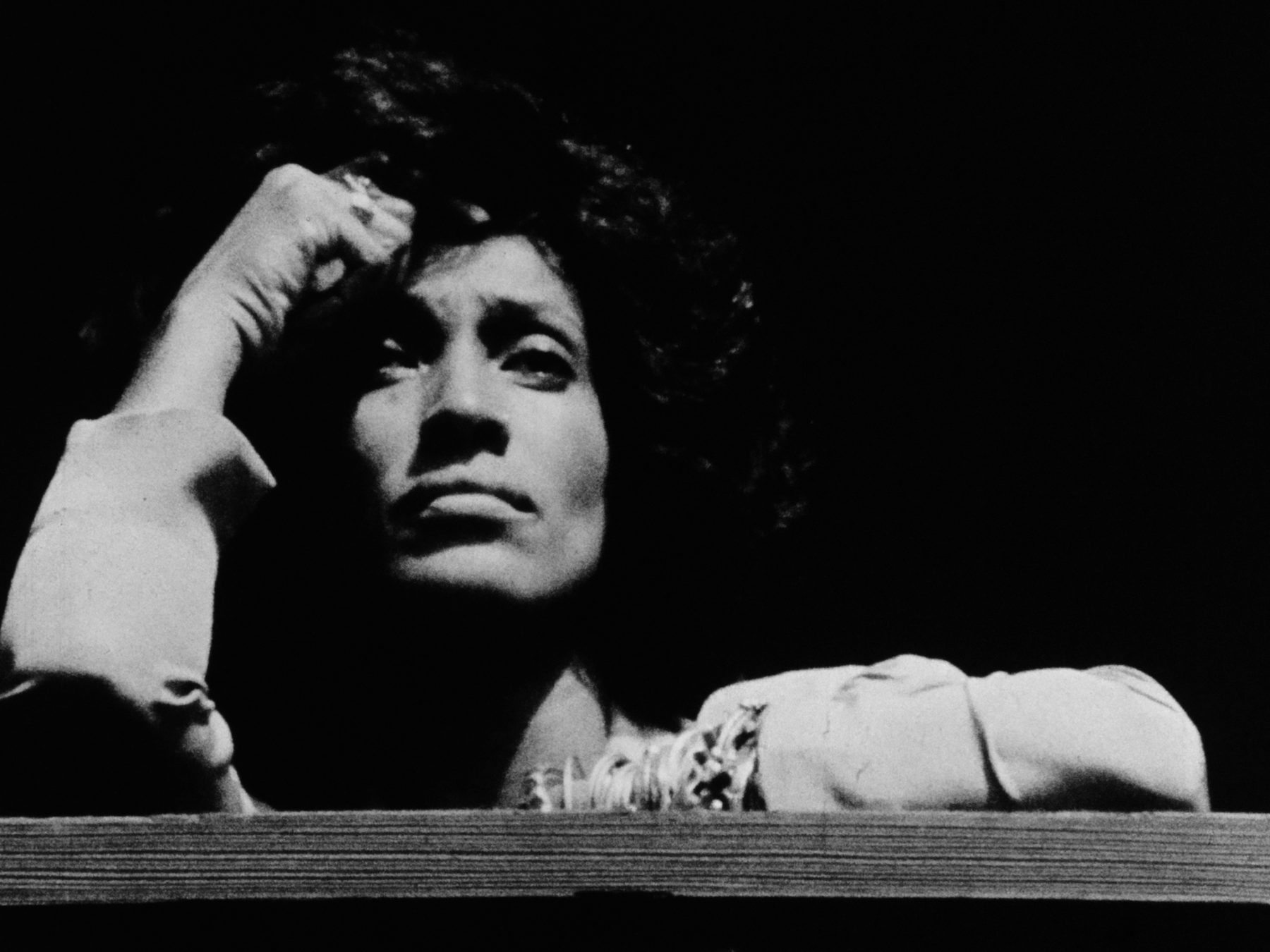
“A fierce and loving assessment of the social movements of the 1960s from the vantage point of the 1990s culture wars. The film features interviews with three of the most influential Black feminist intellectuals of our time: Angela Y. Davis, Alice Walker, and June Jordan. The trio asserts the centrality of Black women’s labor and the necessity of intersectional movements for the liberation of all people—past, present, and future.” —Leigh Raiford
A Place Of Rage (55 min., 1991) is shown in the context of The Work We Share, a film program of ten newly digitized films from the Cinenova collection. Produced between 1972 and 1994, the films address oppositional histories and questions of difference through the lenses of gender, race, sexuality, health, and community.
The Work We Share gathers a number of films that previously existed in precarious conditions, in some cases, with negatives being lost or distribution film prints being the only copy. This program intends to acknowledge Cinenova’s interdependency: from organization to filmmakers, cultural workers, communities, and individuals. How can we acknowledge our interdependent relationships? How can we recognize our place in a network of communications, relationships, and resources, particularly as an un-funded volunteer organization? What different strains of labor does our work rely on? How do we sustain this work mutually?
Cinenova is a volunteer-run charity preserving and distributing the work of feminist film and video makers. It was founded in 1991 following the merger of two feminist film and video distributors, Circles and Cinema of Women, each formed in 1979. Cinenova currently distributes over 300 titles that include artists’ moving image, experimental film, narrative feature films, documentary, and educational videos made from the 1910s to the early 2000s.
Pratibha Parmar (b. 1955, Kenya) is an award-winning documentary filmmaker, video artist, and professor. Awarded The Visionary Award from the One in Ten Film Festival and the Frameline Film Festival Life Time Achievement Award, Pratibha is Writer/Director/Producer of over 16 documentaries. She is the author and editor of several groundbreaking books, notably The Empire Strikes Back: Race and Racism in 1970s Britain, and editor and publisher at Sheba Feminist Press, the first UK publisher of Audre Lorde. Pratibha was Visiting Artist at Stanford University, Theatre & Performance Studies Department (2013) and is currently an Associate Professor in the film department at California College of the Arts, San Francisco.
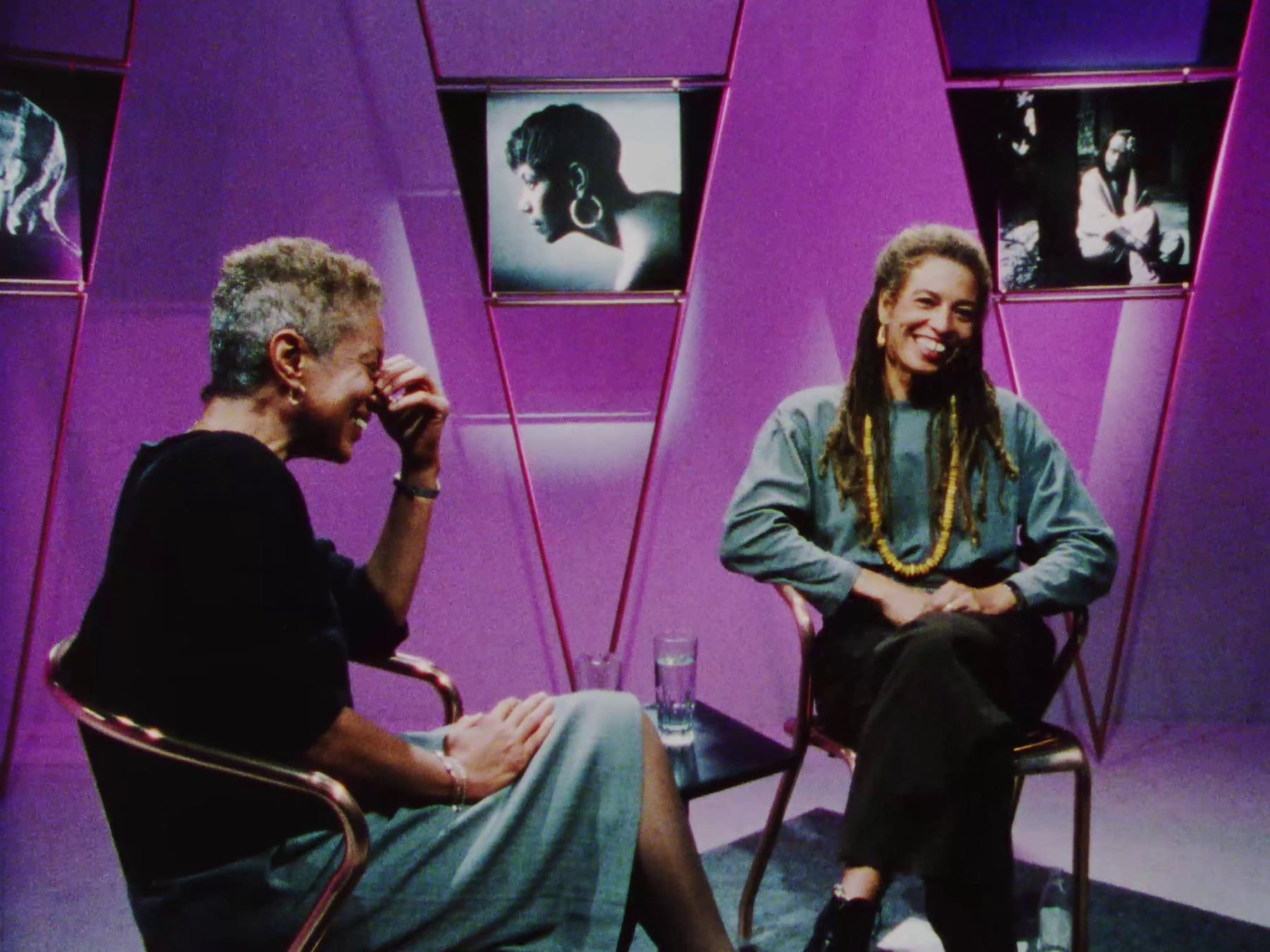
“A Question of Choice (18min., 1982) features a small group of low-paid women workers – two cleaners, a cook, a lollipop lady – and a male caretaker in a school in Walkley, Sheffield. The participants describe the limited employment choices available to women when family remains their first priority. While the work they do is hard and poorly paid, it does offer them flexibility, with hours that fit in with their family lives, as well as affording them close contact with the community and their children’s education. Beyond the work that they do in the school, these women run activities at a local community centre and organise events for children in the local area. Displaying some optimism about the way the women successfully organise community activities and support one another, the film raises particular questions that other women viewing the film might recognise in their own lives, with the aim of provoking discussion.” —Emma Hedditch
A Question of Choice is shown in the context of The Work We Share, a film program of ten newly digitized films from the Cinenova collection. Produced between 1972 and 1994, the films address oppositional histories and questions of difference through the lenses of gender, race, sexuality, health, and community.
The Work We Share gathers a number of films that previously existed in precarious conditions, in some cases, with negatives being lost or distribution film prints being the only copy. This program intends to acknowledge Cinenova’s interdependency: from organization to filmmakers, cultural workers, communities, and individuals. How can we acknowledge our interdependent relationships? How can we recognize our place in a network of communications, relationships, and resources, particularly as an un-funded volunteer organization? What different strains of labor does our work rely on? How do we sustain this work mutually?
Cinenova is a volunteer-run charity preserving and distributing the work of feminist film and video makers. It was founded in 1991 following the merger of two feminist film and video distributors, Circles and Cinema of Women, each formed in 1979. Cinenova currently distributes over 300 titles that include artists’ moving image, experimental film, narrative feature films, documentary, and educational videos made from the 1910s to the early 2000s.
Sheffield Film Co-op. In the early 1970s, the second women’s liberation movement was engaging in raising consciousness about issues women faced in their domestic and work lives. It was soon clear that there was a need to disseminate feminist ideas about the issues to a wider audience than those women already attending meetings. A small group of women with young children in Sheffield realized that film could be a powerful means of giving women the voice they did not have in the mainstream media. A Question of Choice was Sheffield Film Co-op’s fourth film, made in 1982 on 16mm with a crew of two and shown on projectors in community and adult education centers. With funding from Channel 4’s Independent Film and Video Department, SFC later went on to make films for broadcast and to help train new women filmmakers.
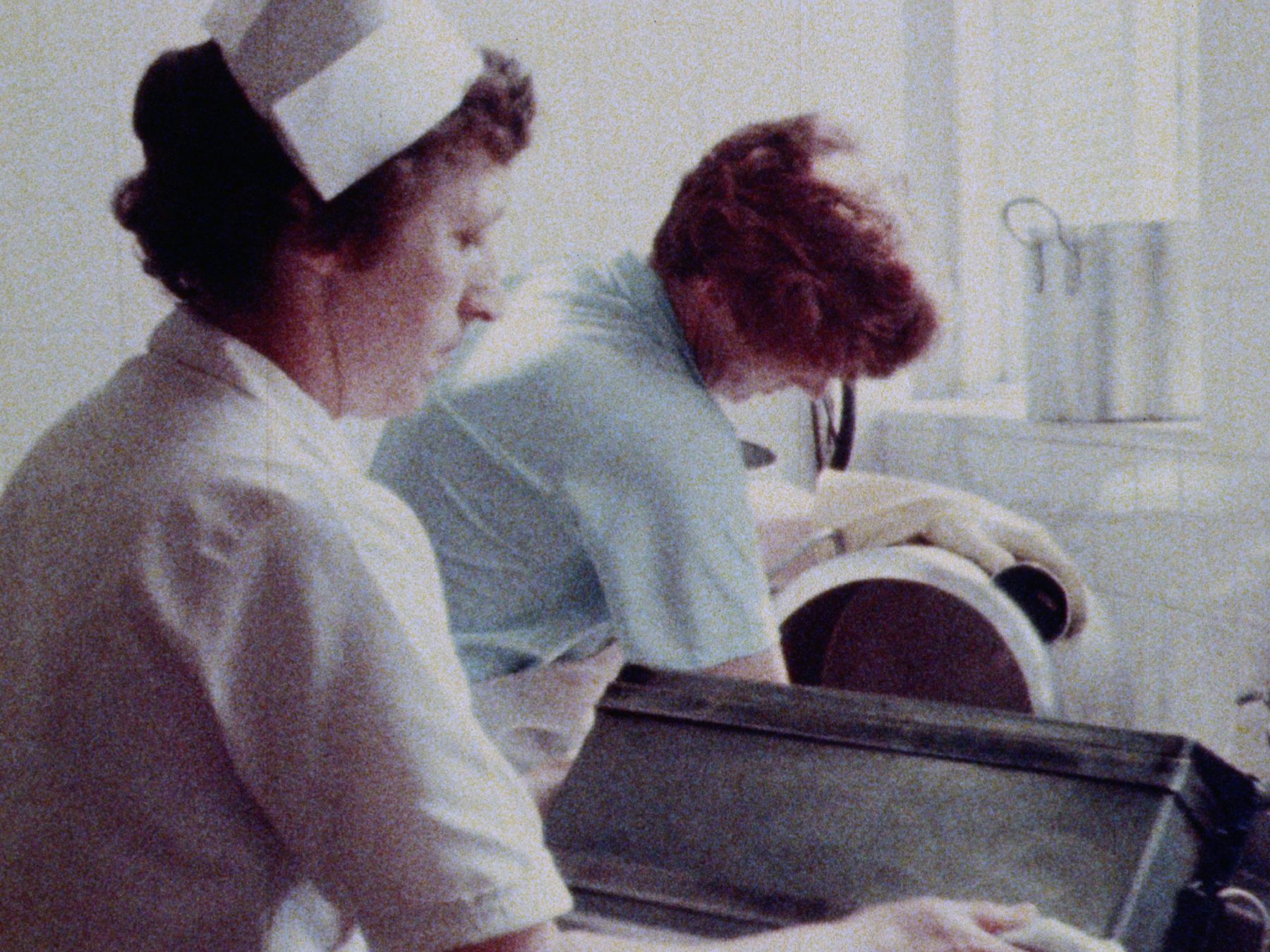
Scuola Senze Fine (School Without End; 37 min., 1983) was made in collaboration with students from the adult education 150 Hour Secondary School diploma course with whom Adriana Monti had been working for a year.
The 150 Hours Courses were an educational experiment implemented in Italy beginning in 1974, available to factory workers and farmers initially, and expanding to include women a couple of years later. The courses were non-vocational; they were not intended to improve one’s productivity at work, but rather to allow for personal and collective growth. The courses sought to help workers reflect not only upon their working conditions but also on their lives.
The film shows how the experiment extended into the lives of women taking the course, most of whom were housewives. The film was produced in collaboration with these students as part of their studies for the class, turning the curriculum’s questions about the representation of women into questions about the representation of themselves. After the group of former housewives had completed their 150-hour secondary school diploma course in 1976 they did not want to stop learning. With the help of their teacher, they formed a study and research group. Monti shot the film about them from 1979–1981, with the first half of it being made collectively by the group.
Scuola Senza Fine is shown in the context of The Work We Share, a film program of ten newly digitized films from the Cinenova collection. Produced between 1972 and 1994, the films address oppositional histories and questions of difference through the lenses of gender, race, sexuality, health, and community.
The Work We Share gathers a number of films that previously existed in precarious conditions, in some cases, with negatives being lost or distribution film prints being the only copy. This program intends to acknowledge Cinenova’s interdependency: from organization to filmmakers, cultural workers, communities, and individuals. How can we acknowledge our interdependent relationships? How can we recognize our place in a network of communications, relationships, and resources, particularly as an un-funded volunteer organization? What different strains of labor does our work rely on? How do we sustain this work mutually?
Cinenova is a volunteer-run charity preserving and distributing the work of feminist film and video makers. It was founded in 1991 following the merger of two feminist film and video distributors, Circles and Cinema of Women, each formed in 1979. Cinenova currently distributes over 300 titles that include artists’ moving image, experimental film, narrative feature films, documentary, and educational videos made from the 1910s to the early 2000s.
Adriana Monti (b. 1951, Italy) is an Italian-Canadian independent producer, feminist filmmaker, and author. She started her career in Italy in the late 1970s by developing a collaborative and experimental style that allowed the women who were the subjects of her research to take an active and creative role in her films. Monti founded the experimental film school Lanboratorio di Cinematografia – Albedo, where she taught and managed while she was finishing Scuola Senza Fine in 1983. She also taught film history and film production at the Women’s Free University and the Film and Television School in Milan. Monti moved to Canada in 1996, where she worked for fifteen years as a reporter and story producer at OMNI Television Rogers Media and started her own company A&Z Media Ltd.
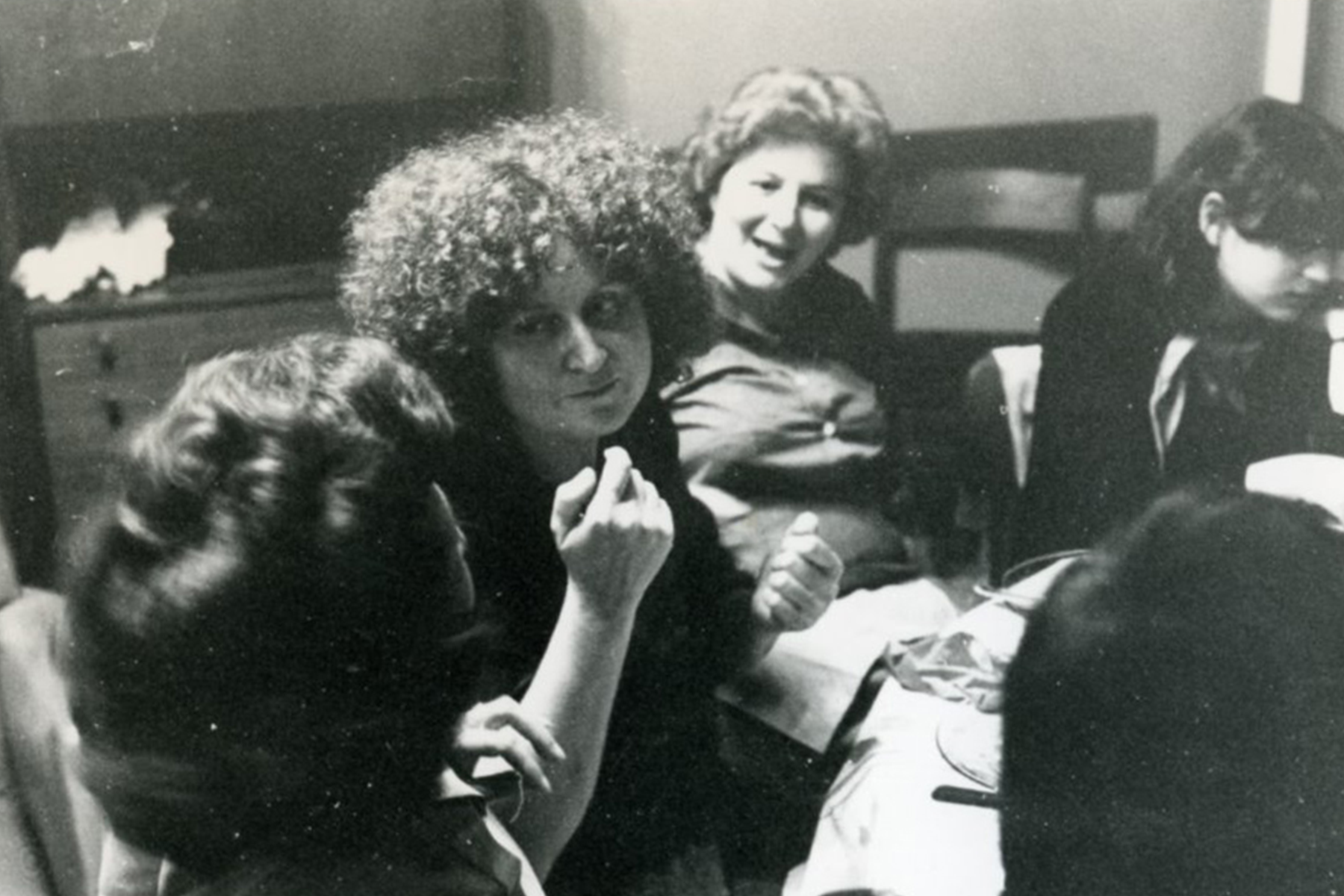
Loss of Heat (1994, 20 min.) is an evocative portrayal of queer love that challenges preconceived notions on the “reality” of living with the invisible disability of epilepsy. It is a poetic, immersive interpretation exploring the interplay of the emotional and the physical across boundaries of sexuality, dependence, and desire.
Loss of Heat is shown in the context of The Work We Share, a film program of ten newly digitized films from the Cinenova collection. Produced between 1972 and 1994, the films address oppositional histories and questions of difference through the lenses of gender, race, sexuality, health, and community.
The Work We Share gathers a number of films that previously existed in precarious conditions, in some cases, with negatives being lost or distribution film prints being the only copy. This program intends to acknowledge Cinenova’s interdependency: from organization to filmmakers, cultural workers, communities, and individuals. How can we acknowledge our interdependent relationships? How can we recognize our place in a network of communications, relationships, and resources, particularly as an un-funded volunteer organization? What different strains of labor does our work rely on? How do we sustain this work mutually?
Cinenova is a volunteer-run charity preserving and distributing the work of feminist film and video makers. It was founded in 1991 following the merger of two feminist film and video distributors, Circles and Cinema of Women, each formed in 1979. Cinenova currently distributes over 300 titles that include artists’ moving image, experimental film, narrative feature films, documentary, and educational videos made from the 1910s to the early 2000s.
Noski Deville (United Kingdom) is a cinematographer and film artist working across film, music, and sound. As Workshop Co-ordinator at the London Filmmakers Co-Op in the 1980s, she developed her skills on the JK Optical Printer. Deville has over 25 years of experience as a cinematographer and is well known for her award-winning work with internationally acclaimed artists, including Isaac Julien, Steve McQueen, Alia Syed, Daria Martin, and Jananne Al-Ani. In 2015 she won the Jules Wright Prize for her cinematography in the field of visual arts. An industry-recognized Director of Photography and member of the Guild of British Camera Technicians, Deville is also a committed film educator, having headed up the Cinematography Department at UCA, Farnham Film School.
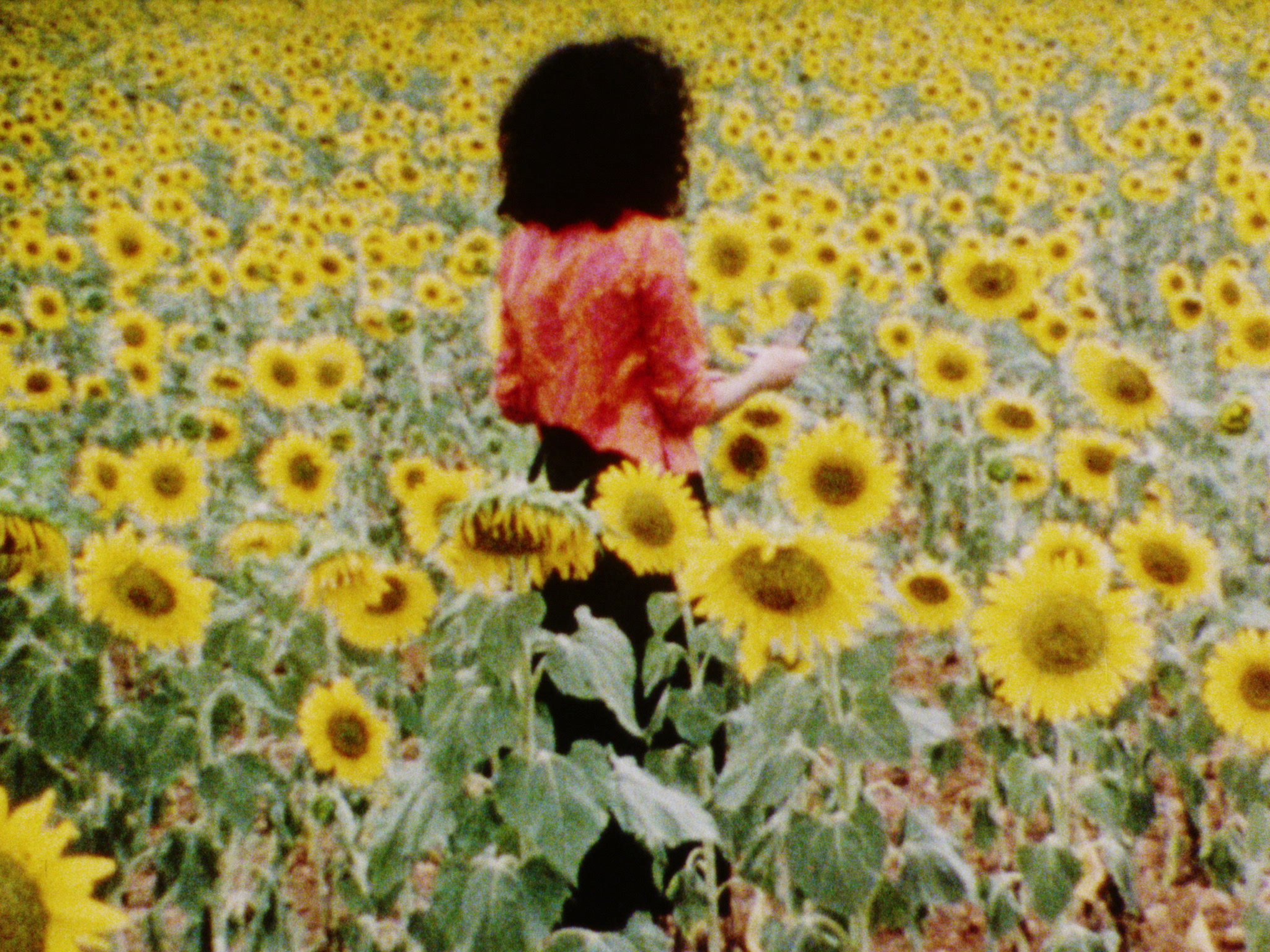
Now Pretend (1991, 10 min.) is an experimental investigation into the use of race as an arbitrary signifier. Drawing upon language, personal memories, and John Howard Griffin’s 1959 text, Black Like Me, it deals with Lacan’s “mirror stage” theory of self-perception and the movement from object to subject.
Now Pretend is shown in the context of The Work We Share, a film program of ten newly digitized films from the Cinenova collection. Produced between 1972 and 1994, the films address oppositional histories and questions of difference through the lenses of gender, race, sexuality, health, and community.
The Work We Share gathers a number of films that previously existed in precarious conditions, in some cases, with negatives being lost or distribution film prints being the only copy. This program intends to acknowledge Cinenova’s interdependency: from organization to filmmakers, cultural workers, communities, and individuals. How can we acknowledge our interdependent relationships? How can we recognize our place in a network of communications, relationships, and resources, particularly as an un-funded volunteer organization? What different strains of labor does our work rely on? How do we sustain this work mutually?
Cinenova is a volunteer-run charity preserving and distributing the work of feminist film and video makers. It was founded in 1991 following the merger of two feminist film and video distributors, Circles and Cinema of Women, each formed in 1979. Cinenova currently distributes over 300 titles that include artists’ moving image, experimental film, narrative feature films, documentary, and educational videos made from the 1910s to the early 2000s.
L. Franklin Gilliam (b. 1967, United States) believes that, in a broken world, the vision and creativity of artists are critical to transformative systems change. Gilliam’s creative practice is research-based and multidisciplinary. It has taken the form of film/video art, installation, games, and illustrated lectures. Gilliam’s projects explore the interplay between obsolete technology formats and the faulty transmission of historical knowledge and difference. Their projects have been screened and presented at the 1997 Whitney Biennial (New York), the New Museum (New York), the Oberhausen Short Film Festival, the Institute for Contemporary Art (London), and are featured in Anäis Duplan’s book BLACKSPACE: On the Poetics of an Afrofuture (2020). They have taught at the School of the Art Institute of Chicago, the University of Wisconsin-Milwaukee, and Vermont College of Fine Arts. They held various positions at Bard College, including director of the Integrated Arts Program. In 2022, they were artist-in-residence at the Centre for Afrofuturist Studies in Iowa.
